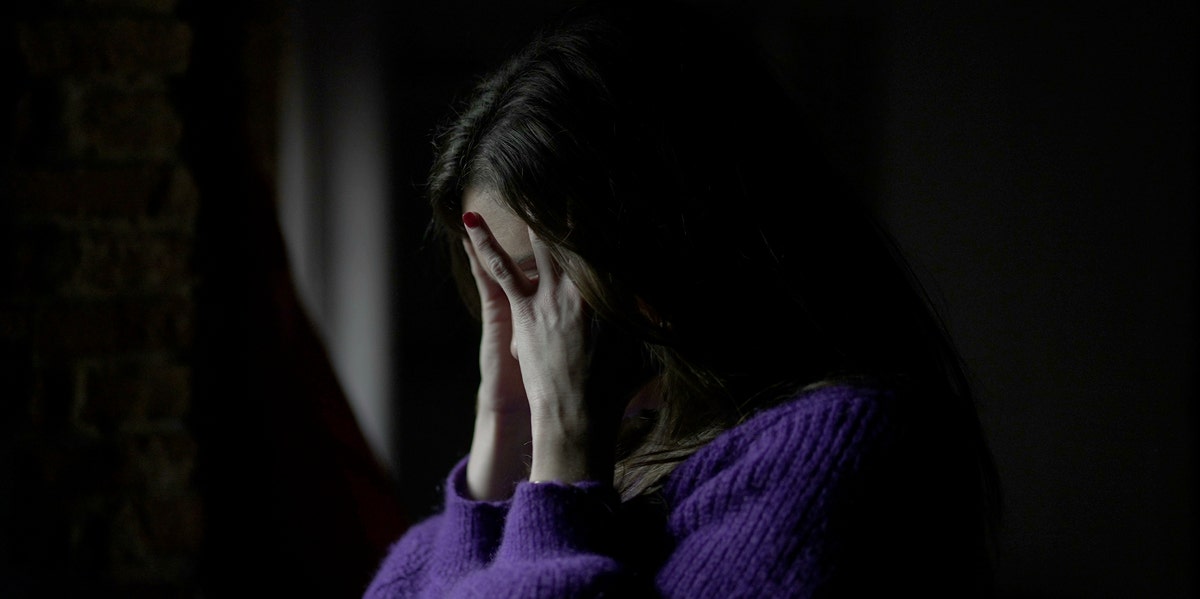What Going Through A Break Up Is Like When You Have OCD
An OCD Breakup? You analyze every little thing that could have caused the relationship to go wrong.
 True Touch Lifestyle / Shutterstock
True Touch Lifestyle / Shutterstock By Shawn Binder
Ugh, OCD breakups.
Breakups are difficult enough without OCD, and there are no amount of words I could write that could accurately reflect the acute feeling of loss and the feeling that all the memories that once made you so happy are sifting through your hands like sand.
What I can say is this: having recently gone through a difficult OCD breakup, it’s possible to begin to see the light at the end of the tunnel.
I am unashamed to admit that I have a serious bout of OCD, and it is something I have struggled with for most of my life in waves.
Unlike the usual cases of OCD that we see on screen, I don’t always count things out. Instead, I allow my mind to wander and invent scenarios that in no possible way have grounding in the real world.
At times, when I’m feeling anxious or upset about a situation, my mind is able to quickly invent eight different scenarios all with the same conclusion: your life is over, pack it in.
It would be self-important for me to think that I’m the only person on this planet who does this when they have something emotionally traumatic happen to them.
I’m almost positive that others are able to invent scenarios when they’re upset about something, even if all of those scenarios would sound totally implausible to an outsider.
What I do know is how acutely the pain is when you live inside your own head, when you feel like every moment that painful thing that has happened to you feels like it’s the changing point in your life in which nothing will ever be the same.
When you go through a breakup with OCD, it’s very difficult to let go.
You are constantly analyzing where you went wrong in the relationship — the moment that things broke for good — what you could have done to stop it all.
It feels as if every event leading up to the breakup was in your hands, and that you alone hold all the responsibility for what occurred, even though your friends tell you often that relationships are driven and ended by two people, together.
You also invent scenarios that could never possibly happen, like that they’ve been seeing someone for months before you. That they never loved you. That they hated the sex. That they were deeply unhappy and hiding it the entire time.
That the entire relationship was a lie and they have been tricking you all along and laughing with their friends throughout the entire time you two were together.
Even if you subconsciously know that these things are probably not true, you can’t help but feel justified in feeling them.
The world has eaten you up and thrown you out, so naturally, you catastrophize every moment in your life.
And the reason you do this is because you want to be right in a way. You want to find out they’re seeing someone new, or that they’re back on dating apps the day after they left you — because when your insane theories turn out to hold a sliver of truth, you can’t help but feel vindicated. You can’t help but feel like finally, the world has risen to meet your inner chaos and you want to shout to everyone “See, I told you.”
When you have OCD and you’re going through a breakup, you realize that there is no joy in being right in your thoughts, and you realize there is no joy in being wrong.
However, despite all this, eventually, your OCD begins to forgive yourself.
You begin to see different scenarios of your life without that person. Sometimes, those scenarios actually seem pretty nice. You begin to allow yourself to sift through the breakup in a way that is extremely enlightening because unlike other people without OCD who are able to let things go, you’re truly putting in the work and processing what you went through.
Having these thoughts rage inside your mind is exhausting, and at times you wish you could just shut the world out and numb the pain, but when you have OCD and you’re going through a breakup it is in a way, a gift.
You’re refusing to forget what you shared with that other person; you’re refusing to not process the pain so you never have to experience it in the same way with someone else again.
Shawn Binder is a writer focused on relationships and mental health.

